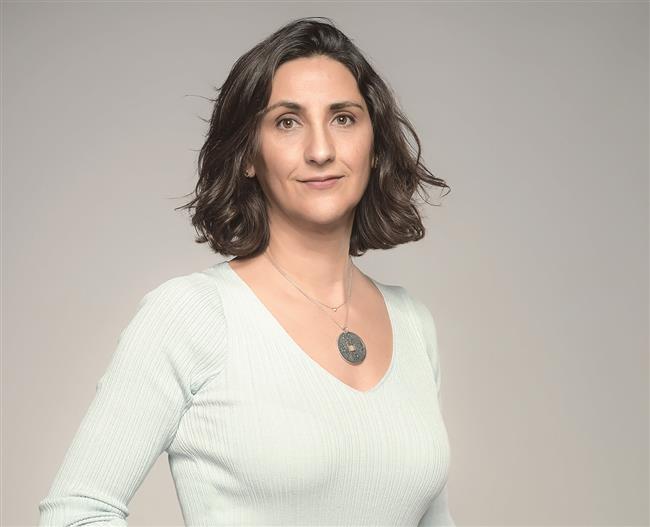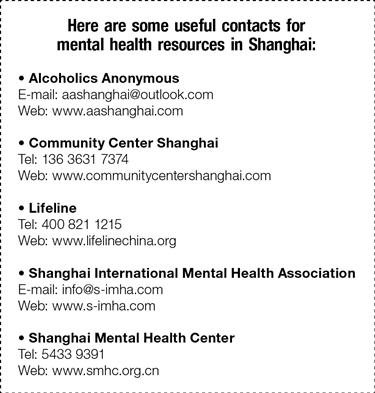The present moment: Why mindfulness is more important than ever

Thich Nhat Hanh, the beloved Zen Buddhist monk who helped bring mindfulness to the West and socially engaged Buddhism to the East, died on January 22. He was 95. Hanh began teaching in the 1970s, urging people to pay attention to experiences in the body and mind, rather than dwelling on the past or living in the future. But mindfulness didn't mean disengagement from the world or its issues. Hanh believed the practice led toward compassionate action and an openness toward others and their views. Across near eight decades, his message was made accessible to all, building a bridge between ancient wisdom and the modern world. Eventually, Hanh's influence entered clinical psychology, laying the foundations for what would later be known as mindfulness-based dialectical behavior therapy.
I spoke with Shanghai-based clinical psychologist Laura Ruesjas-Lukasik about mindfulness and why it's more important than ever.
What's mindfulness, and what does it mean to be mindful?
Mindfulness is a skill with roots in Buddhism. It increases our awareness of the present moment and allows us to make informed decisions about dealing with things. In other words, mindfulness enables us to take hold of our minds and emotions rather than being controlled by them.
What's the difference between meditation and mindfulness?
Meditation is a formal practice. To meditate is to concentrate on something without external stimuli, such as our breath, the body or a mantra. Mindfulness accepts our entire experience. It puts us in the moment, without judgment or a call to action. We're not looking to change feelings or thoughts; we're just present with them.
We hear a lot about the "present moment," the reality of which can be far from appealing.
I hear you. What we experience in any moment isn't always ideal. But let me give an example. Imagine a child or partner needs attention. If we focus on them, we're practicing attentional control, and our mind is in the moment. Now picture the same scene, only we're juggling the experience with cooking, planning our day, texting a friend and scrolling social media. Which scenario ends badly?
The second. But why?
Have you ever been busy and found yourself responding to a perceived interruption with anger or frustration? Or perhaps you've drifted off when someone's trying to tell you something?
For sure.
Haven't we all. And it causes us to lash out, make rash decisions or forget the goal of social interactions. Mindfulness increases our control over these unhelpful behaviors.

"Mindfulness enables us to take hold of our minds and emotions rather than being controlled by them."
To be honest, I've been pretty dismissive of mindfulness. How helpful is it?
Mindfulness boosts our attention and productivity but also heightens our empathy. Over time, mindfulness improves our health by reducing pain and stress while increasing our capacity for pleasure. So much so, many mental health professionals in Shanghai use mindfulness in their practice.
Do you use mindfulness with clients?
Absolutely, and it can be transformational, particularly for those living with anxiety, depression, hyperactivity, low concentration or overthinking, sadness, stress, worrying thoughts and anyone struggling to control impulses. We discuss triggers and urges, and how mindfulness can distract our minds until we can make healthier choices.
But that doesn't solve the root issue.
You're right. But it can be an effective first step toward regulating emotions and future work on root issues. We aim to reach a "wise mind" state, where decisions are made about feelings and situations without further damaging ourselves or others.
Who is mindfulness for?
Everyone. From adults to adolescents and children. It's an easy practice that can become habitual. Mindfulness doesn't need a particular setting or time. We can be mindful while bathing, eating, exercising or talking to someone. That's the power of its practice; mindfulness can be done anywhere, and it costs nothing.
Why is mindfulness important in 2022?
When COVID-19 hit, few imagined we'd live with it for so long. Yet here we are, and there's still great uncertainty across our community. Add to that everyday demands or distractions, and life gets difficult. With mindfulness, we can be present and enjoy what's here rather than focusing on potential futures we cannot predict or control. Put simply, mindfulness is more important than ever.


















